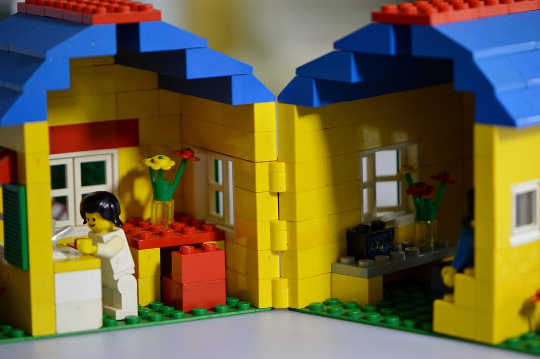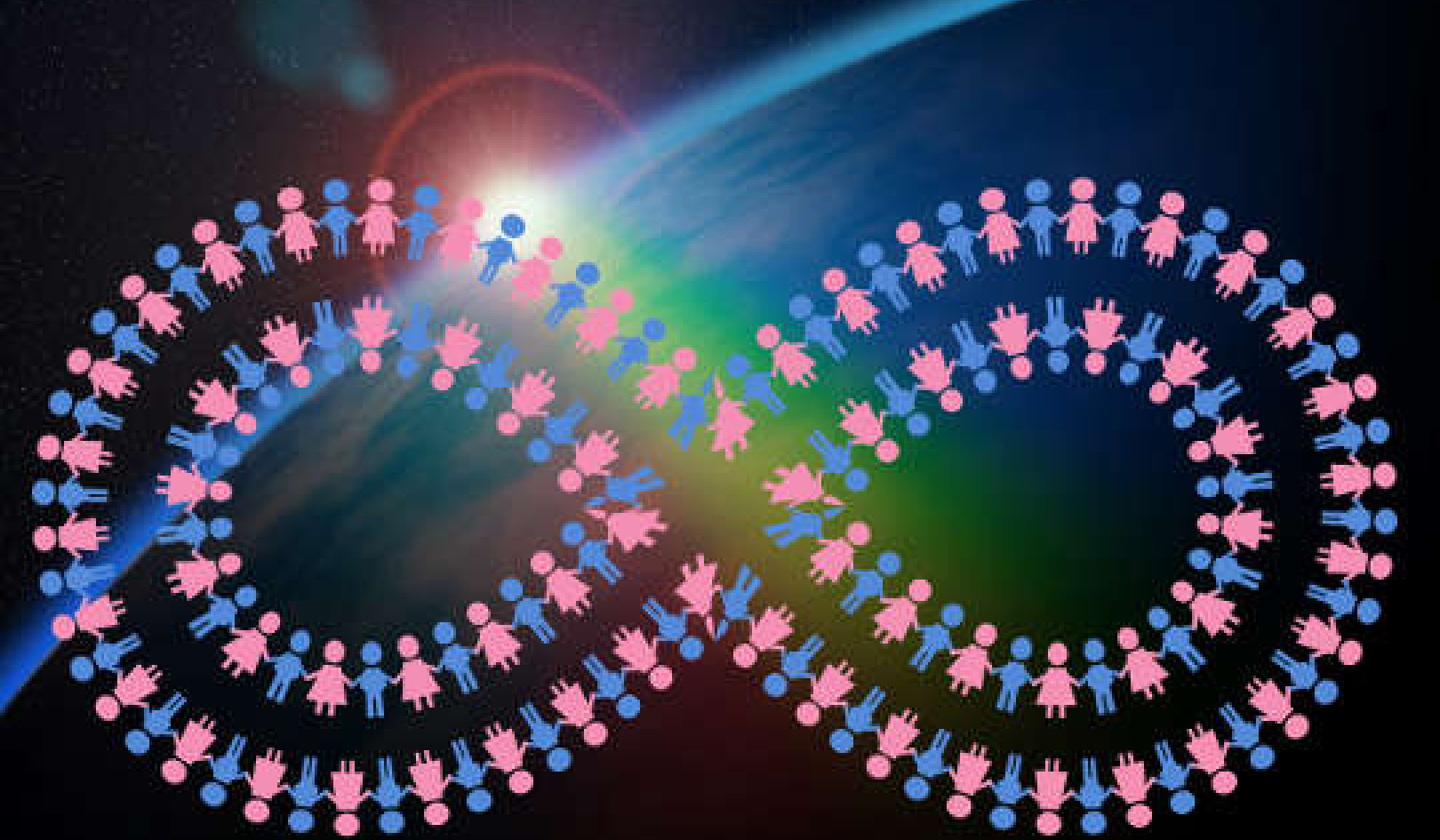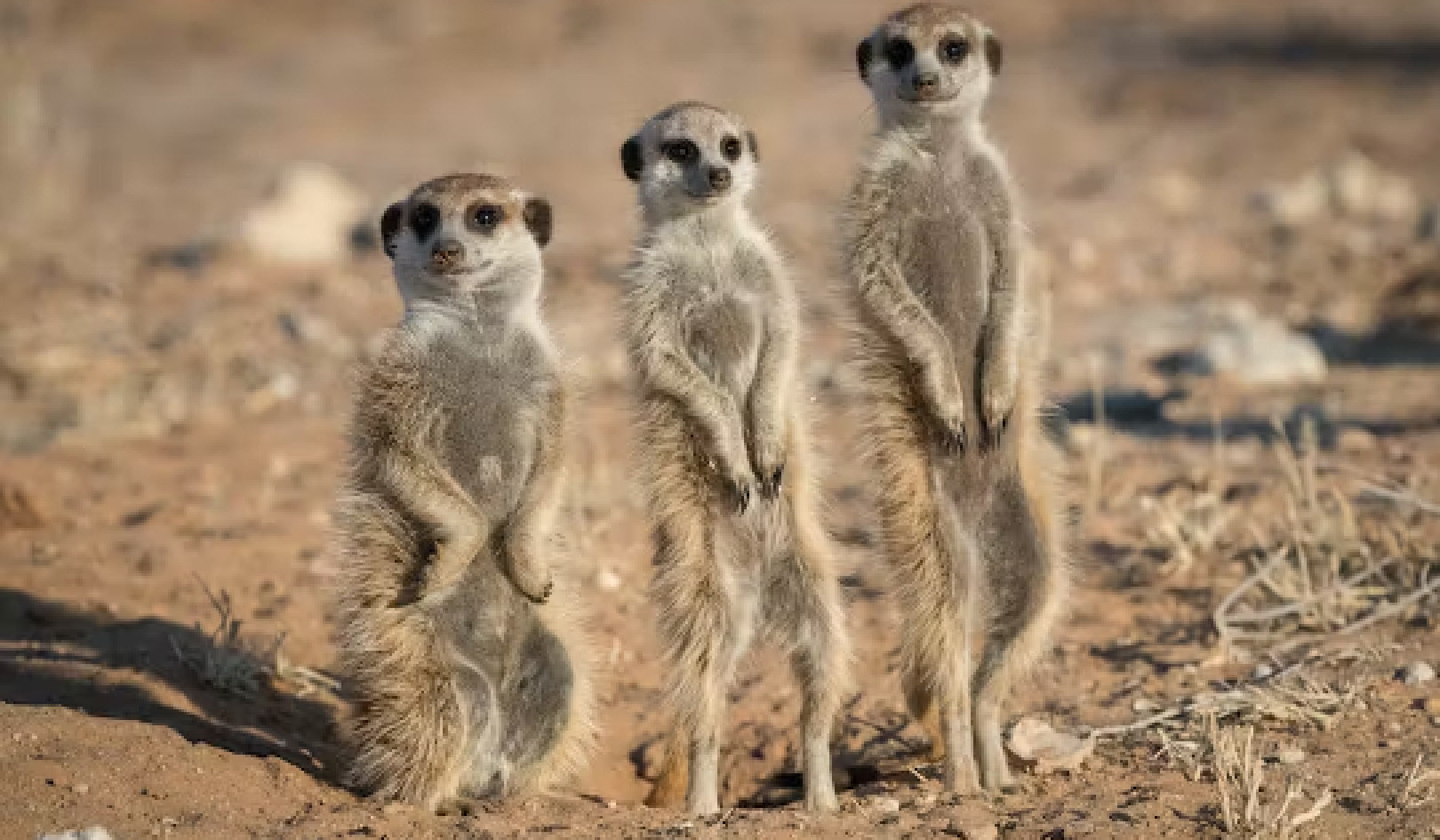
Art Credit: MaxPixel. (CC 2.0)
We have a choice. We can futilely try to protect ourselves and our families behind high walls, electric gates, and "Star Wars" missile shield technologies, and turn a blind eye toward chronic human rights violations and an economic globalization that is not accountable to anyone. Or we can join with people and organizations from all the world's nations to lay the foundations for a world of peace, to ensure workers are protected by international standards, and to find ways of giving value to caring and caregiving.
Rather than putting corporate profits ahead of human welfare -- and even, as is happening, exporting our radioactive waste to developing nations -- let us work to ensure that there are environmental safeguards worldwide and that everyone's basic material needs are met. Rather than turning the other way, let us join to protect children, women, and men from human rights abuses. Let us remember that unless every child is safely cared for in our global village, no child is safe.
It is time to realize that we need a global partnership: we're all together on one planet, one single support system. We have to work in partnership to ensure the security and health of everyone, and the safety and opportunities for the generations to follow.
This requires governments, corporations, and the rest of us to do what we can to create a sustainable world, to work with respect with all our resources, including every child and adult on earth.
These and many other actions you can take in the course of your daily life are building blocks for the road to a partnership future. Every one of these building blocks advances the partnership political agenda.
Grassroots groups all over the world are peacefully changing customs, institutions, and practices in a partnership direction. They are working to preserve our environment, promote nonviolent conflict resolution, and protect the human rights of children, women, and men. These groups aren't being organized by specially trained or specially endowed people. They're being organized by "ordinary" people -- young and old, black and white, female and male -- people just like you and me.
Andrea Guellar, a twelve-year old Bolivian girl who works as a domestic servant to survive, leads a group of children in her poor Santa Cruz neighborhood who meet to help each other as well as other children. Called Defensores del Pequeno Mundo (Defenders of the Little World), this "children's brigade" conducts its own anti-violence campaign, going to the homes of children who are abused to talk to their parents, explaining why it's important not to beat children, pleading with them not to use violence against their children.
When they were fifteen and sixteen, Ocean Robbins and Sol Solomon formed YES (Youth for Environmental Sanity), which has enlisted thousands of high school and college students into environmental activism. Patricia Cane, a former nun, founded CAPACITAR to help poor women and children in the United States and Central America. Ella Bhatt formed SEWA, the Self-Employed Women's Association, which pioneered small loans to women entrepreneurs. SEWA now has its own bank and lobbies for women's rights across Indian society. Wagari Maathai founded the Green Belt Movement in Kenya to conserve the environment and improve women's lives. Millions of trees have been planted through this movement, which has spread to other African nations
You may not want to start an organization. And you may not have a lot of free time to volunteer. But you can join or send donations to organizations working for human rights, peace, democracy, economic equity, and freedom.
UNICEF is the United Nations agency devoted to helping children. The Children's Defense Fund, Defense for Children International, and the Inter-American Children's Institute work for the rights of children. These and other groups are trying to end the abuse of children worldwide, including the killing of children simply because they are homeless. (A powerful documentary showing how these abuses are often carried out with the complicity of those in authority is Innocents Lost by filmmakers Kate Blewett and Brian Woods, whose earlier work The Dying Rooms, an exposé of the mistreatment of abandoned girls in Chinese orphanages, also won critical acclaim.)
The U.N. International Development Fund for Women (UNIFEM) and the U.N. International Research and Training Institute for the Advancement of Women (INSTRAW) are United Nations agencies formed to help women. Organizations such as the Women's Environment and Development Organization (WEDO), the Feminist Majority, the American Association of University Women (AAUW), and the Women's International Network (WIN) News are also dedicated to the empowerment of women as one of the foundations for a better society. The Global Fund for Women gives grants to grassroots women's groups worldwide. The Hunger Project is dedicated to eradicating hunger by empowering women.
Planned Parenthood International, Population Action International, and Pathfinder International work to stem the tide of unwanted children and at the same time empower women. Organizations such as the Union of Concerned Scientists and the Environmental Defense FundIPN) links people committed to the shift to a partnership world, and the Center for Partnership Studies (CPS) develops and promotes partnership education. are working to protect our natural environment. The International Partnership Network (
Another important action is to introduce partnership education into schools. We need to ensure that our education is gender-balanced and multicultural, and the resources available from the Center for Partnership Studies can be helpful in these efforts. We also need to close the huge education gap between boys and girls in much of the developing world, so that girls and women have equal access to literacy and basic knowledge and skills -- an essential step toward a truly developed world.
There are many other things you can do. You can lobby your senators to ratify the United Nations Convention to Eliminate All Forms of Discrimination Against Women (CEDAW) and the United Nations Convention on the Rights of the Child. Although both these agreements have been ratified by many nations, neither has at this writing been ratified by the U.S. Senate.
You can change your purchasing habits. For your long distance telephone service and Visa credit card you can choose a company called Working Assets, which donates a percentage of profits to organizations working for social justice and protection of the environment. You can buy clothes from companies such as Levi Strauss (the makers of Levi's), who pay workers (both in the U.S. and overseas) a living wage and don't use child labor. You can buy environmentally safe products from companies such as Real Goods and Seventh Generation, both of which sell items through their catalogs and websites (www.realgoods.com and www.seventhgen.com). You can buy cosmetics from the Body Shop stores, which employ indigenous peoples and sell natural products that haven't been cruelly tested on animals.
You can ask relatives or friends to make a donation to an organization working for peace, human rights, or partnership education at Christmas or other occasions instead of giving you a gift. If you're a writer, artist, or filmmaker, you can write articles, use art to raise consciousness, make documentaries, feature films, videos, or create new television programs. If you're a teacher, you can bring in speakers from groups working for social equity and environmental sustainability. You can make arrangements with these groups for student internships for your school's service learning programs.
You can buy videos from the Media Education Foundation, or the Center for Partnership Studies, including my video Tomorrow's Children: Partnership Education in Action, or you can ask your community's schools and universities to purchase them. You can ask your municipal government to form city-to-city partnerships, like Sister Cities, a worldwide citizen diplomacy program.
I have already suggested many ways you can put partnership relations into practice. You have also seen that there is movement toward partnership relations all around you. In families, more empathic parenting styles are beginning to take hold. Women are entering professions that were once restricted to men, and many men are no longer ashamed to take care of babies or exhibit other so-called feminine behaviors. Many companies are discovering that a partnership leadership style that empowers others is more effective than the old-fashioned autocratic leadership style. The idea of nonviolent conflict resolution is beginning to change the old idea that you have to out-shout or beat up or kill your opponent. The idea that we should try to live in harmony with our Mother Earth is beginning to change the "conquest of nature" mentality.
You may ask, can whole countries move toward the partnership model? The answer is emphatically yes -- many countries have already made huge advances toward the partnership model. Scandinavian countries such as Sweden, Norway, and Finland have created much more equitable societies with a good living standard for all.
The Scandinavian nations pioneered experiments in economic democracy that did not result in another dominator system, as happened in the former Soviet Union. They were the first nations to move toward more industrial democracy, pioneering teamwork by self-directed groups to replace assembly lines where workers are mere cogs in the industrial machine. In these societies there is much greater partnership between women and men, as well as a much greater acceptance of women in leadership positions: women have held the highest political offices and a larger proportion of legislators are female than anywhere else in the world.
These societies also show a greater acceptance of "feminine values." Consequently, caring and caregiving have become a key part of their social policy, and the Scandinavian health care, childcare, and eldercare systems have become models for other industrialized nations.
The Scandinavian nations also pioneered nonviolent conflict resolution. They established the first peace academies when the rest of the world only had war academies, and in Scandinavia there is a strong movement by men against male violence toward women. Rather than increasing the violence against nature presently ruining so much of our world, Scandinavian nations have pioneered more environmentally sound manufacturing approaches, such as the "Natural Step," where materials are recycled even after they reach the consumer to avoid pollution and waste.
These nations are not "pure" partnership societies. As I said, there is no such thing as a "pure" domination model or partnership model in practice. Most families, organizations, and societies lie somewhere between these two poles. But the Scandinavian nations show how more partnership-oriented structures, beliefs, and relations support less violent, more caring, more environmentally sustainable ways of living.
Every culture has partnership elements that can be strengthened and built upon. If we really want a more peaceful world -- a world where we and our children can feel safe -- we will help in this process. We can't wait for governments to take the lead. If enough of us start, government leaders will eventually follow.
You can start by working for the human rights of women and children worldwide. You can urge your governmental representatives to stipulate in foreign aid grants that one-third be used for children's nutrition, healthcare, and education, with special emphasis on the girl child. You can urge them to channel this aid directly to grassroots organizations such as The Hunger Project or the American Friends Service Committee (Quakers) that work with local groups of mothers to prevent this funding from being diverted into the pockets of those in power. You can write letters to heads of governments that still condone the brutal subordination of women in the Middle East, Asia, Africa, and Latin America, and urge international human rights organizations to take a stronger stand on human rights violations in these regions. You can urge religious leaders to actively work to end violence against women and children worldwide.
Just pick one or two of the actions described in this chapter or in the action checklist that follows, and get some of your friends or colleagues to join you. This is how change starts.
ACTION CHECKLIST FIRST STEPS
- When you hear about millions of children starving in some corner of the world, think of each as a hungry, bewildered child, not just a faceless statistic.
- When you hear what is being done to women under the guise of religious tradition, imagine what life would be like if you could not let a square inch of your skin be seen in public, could not attend school or have a job, and could not drive a car or even get into one without a male member of your family. When you read of girls and women publicly flogged, hanged, and stoned to death by the Taliban in Afghanistan or other regimes led by religious fundamentalists, imagine yourself and your mothers, daughters, and sisters living under a religious fundamentalist regime.
- Reexamine Christian, Muslim, and Jewish fundamentalist teachings in terms of the core dominator configuration of rigid male dominance, top-down rule, and the religiously condoned use of violence in families, communities, and the world. Consider how these teachings violate the core of their religious teachings: caring, nonviolence, and empathy.
- Think about how the current rules for economic globalization are widening the disparity between the developed and developing world -- and how most of the world's poor are women and children.
- Consider the effect on poor families worldwide of congressional cuts in domestic and international family planning funds, and vote for people who understand the need for policies that support family planning.
- Visualize yourself living in a society where the work of caring and caregiving is highly rewarded, and imagine how this would affect your life and that of your children.
NEXT STEPS
- Buy products and services from socially and environmentally responsible companies, and do not buy from those that are not.
- Invest in stocks of socially and environmentally responsible companies and mutual funds.
- Share the materials in this chapter with others, both one-to-one and by forming a discussion group.
- Contact international human rights organizations and government agencies, urging them to actively work for human rights in both the private and public spheres, focusing particularly on the long-ignored human rights of women and children.
- Speak up against prejudice and hate in radio talk shows and letters to the editor.
GOING FURTHER
- Raise the awareness of your family, friends, and business associates to global partnership as a necessity in our age of instant technologies of destruction.
- Help move political discussions past old categories such as right versus left, East versus West, capitalism versus communism, liberal versus conservative, and religious versus secular to the underlying issue of attitudes and policies that support domination or partnership.
- Ask organizations to which you belong or to which you donate to sponsor a campaign to end violence against children and women worldwide.
- Introduce and support partnership education in schools and universities.
- Work for political candidates who support a national and international politics of partnership, or run for office yourself.
Reprinted with permission of the publisher, New World Library.
©2002. http://www.newworldlibrary.com or 800-972-6657 ext. 52.
Article Source
 The Power of Partnership: Seven Relationships That Will Change Your Life
The Power of Partnership: Seven Relationships That Will Change Your Life
by Riane Eisler.
About the Author
Riane Eisler is an internationally renowned scholar, futurist, and activist. She is the author of several groundbreaking books, including The Chalice and the Blade, Tomorrow's Children, and Sacred Pleasure. She is a charismatic speaker who keynotes conferences worldwide, a consultant to business and government, and president of the Center for Partnership Studies in Tucson, Arizona. Visit her website at http://www.partnershipway.org
























